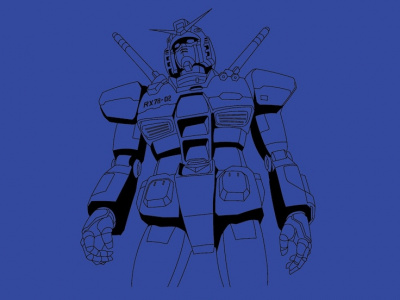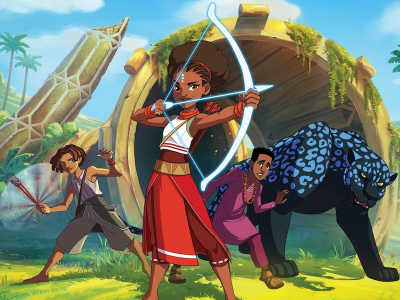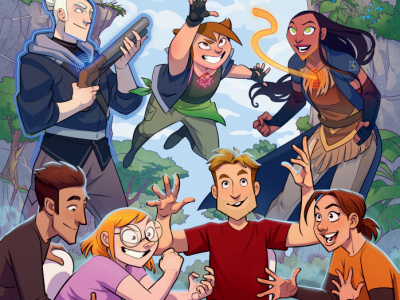Back in the 1950s Ed 'Big Daddy' Roth started airbrushing Rat Fink t-shirts and selling them at custom car shows in order to finance the construction of his own customized hot rods, inaugurating a connection between licensed t-shirts and popular art that reached a zenith during the heyday of underground comics when images created by Gilbert Shelton and R. Crumb sold hundreds of thousands of licensed (and unlicensed) t-shirts. Tim Burton's Batman movie in 1989 sparked another huge outburst of spending on comic-themed shirts that eventually resulted in overproduction and closeouts on all kinds of 'batwear.' Today only a surprisingly small percentage of pop culture retailers make much of an effort to sell apparel in their stores, but those that do often enjoy remarkable success. There are more shirt designs available today than ever before, ranging from the substantial collection of classic comic book characters tees produced by Graphitti Designs, to a wide array of shirts based on contemporary and classic films and TV shows, to a huge assembly of shirts based on an ever-growing collection of anime properties. Here's the first in a series of examinations of the methods of retailers who have had great success in selling apparel items.
Displaying t-shirts
The top requirement necessary to add apparel to your product mix was the first thing that Midtown Comics Owner Gerry brought up, 'You've got to have the room to do it.' Midtown Comics is a spacious second floor walk-up store located in the heart of Manhattan. Out of some 5,000 square feet of retail space, the apparel section totals about 600 square feet. Still, even with a generous floor plan Midtown Comics utilizes two strategies to sell shirts, one of which could be adopted by stores that have no floor space to devote to garment racks, but do have unused wall space. At Midtown the best-selling classic t-shirts including the comic symbol shirts are up on the wall, folded to display their designs, covered in clear plastic wrap, and boarded on a foam-core backer. Midtown also has eight four-foot long garment racks, where shirts are available on hangers and organized by category (television, movies, comics, anime, etc.) and then separated alphabetically within each category. The racks allow customers to 'graze' the selection, which fits with the normal shopping pattern that customers experience when shopping for apparel in other venues.
Inventory control
Whether by cycle sheets or a point-of-sale system, inventory control is crucial to running an efficient apparel section, since stores need to have a handle on sales velocity to keep key items in stock and avoid tying up money in dead overstock. In a store like Midtown Comics with a broad selection of items many styles are kept in relatively small numbers and must be reordered quickly, but very carefully. Midtown deals directly with a number of t-shirt manufacturers including Graphitti Designs, Changes, Trevco, etc. but also does considerable business with Diamond Comic Distributors. Ordering minimums, though they are lower than they used to be, force retailers to be very organized in dealing directly with the manufacturers. A distributor like Diamond may charge a little more but it will ship exact quantities for reorders on shirts that are on its Star System. Midtown's Gerry also noted that Diamond carries a number of imported t-shirts that are available nowhere else.
Security
At Midtown Comics the apparel section is located at the front of the store near the counter. A strategically placed mirror allows the clerks to keep an eye on both sides of the shirt racks.
Sizes
When dealing with t-shirts, one of the key questions is for retailers is what sizes to order and keep in stock. Midtown is very aggressive in its approach to this dilemma. The store carries all sizes on comic symbol shirts. Smalls do sell when it comes to shirts like the Flash 'symbol.' It's a wonder that more pop culture stores don't sell the 'symbol' shirts, which are extremely strong sellers for Midtown. On all other designs Midtown carries medium through XXL. Stores in other parts of the county without as many 'svelte' people (like Wisconsin), may not want to carry mediums for all designs, but Midtown Comics has about as cosmopolitan a clientele as any store in America.
Stock
Midtown Comics carries about 200 different styles of t-shirts. The number fluctuates somewhat, but careful buying and tight inventory control have allowed the store to drop poor performers by simply not reordering when the sales velocity gets too slow.







